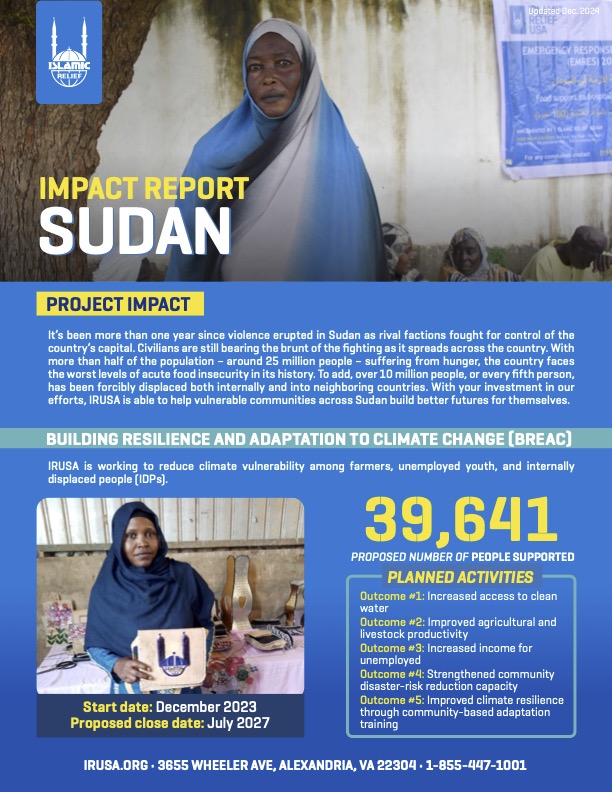Two Years of Crisis
Two years of crisis in Sudan has created one of the world’s worst hunger crises, with famine spreading quickly across the country. Nearly 25 million people – more than half the population – are facing acute food shortages. Extreme violence against civilians and humanitarian aid workers, with hundreds of people killed in the last few weeks alone, has resulted in the suspension of vital humanitarian work and humanitarian catastrophe.
Hiba, 45, who fled to a camp in eastern Sudan after escaping attacks near her home, shared her fears:
“I know that at least five people have died of hunger in the camp. My life before the war was very sustainable and easy, but now living conditions here are bad. I survive on one meal a day of flour mixed with water and sugar. The nutrition value of the food is bad and it doesn’t provide what’s needed for my children. I give them a lot of the food but it’s not enough for them. They get ill more and are getting lighter and weaker. I’m lighter than I was and my dress doesn’t fit anymore. I think the situation will continue and my children and I will get weaker and weaker.”
Your Impact
While issues related to the delivery of humanitarian aid persist, IRUSA has successfully completed the following interventions:
- Food aid for 7,000 people
- Access to clean water for 74,320 people
- Provision of hygiene kits for 2,500 people, non-food item (NFI) kits for 1,550 people, and dignity kits for 1,000 people
- Hygiene promotion sessions for 17,550 people
- Access to medical care for 50,000 people including psychosocial support
- Access to agricultural tools including farm seed and livestock for 31,460 farmers
- Climate awareness sessions for 16,695 people
- Cash assistance for 34,590 people
- Access to vocational training for 520 people including youth
- Access to temporary shelter for 4,380 people
Our Commitment
IRUSA’s first humanitarian response in Sudan was in response to the famine, where we provided vital food aid to people in need. Since then, our focus has been on long-term development assistance to help pull vulnerable communities out of the cycle of poverty.
This includes the following:
- Food aid through IRUSA seasonal programming including Ramadan and Qurbani/Udhiyah
- Access to water, sanitation, & hygiene
- Emergency aid for drought-affected families including sustainable livelihood support
Help vulnerable families across Sudan. Donate today.
Sudan: Impact Report
The effect of your investment is incredible, bringing relief to vulnerable communities. Together, we remain steadfast and dedicated to providing support to families in Sudan. Download the full report and see your impact.
